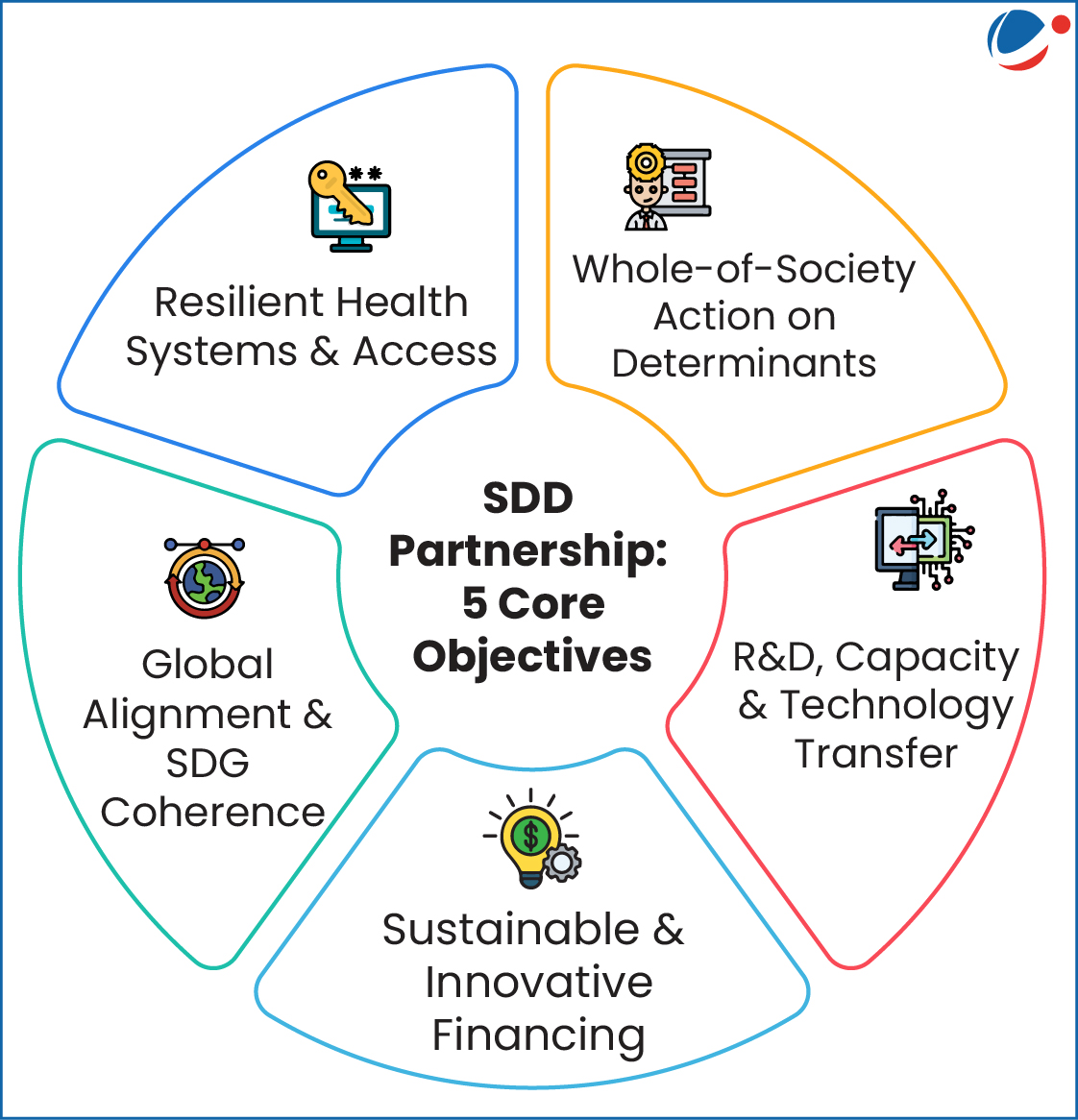Why in the News?
At the 17th BRICS Summit, BRICS leaders signed the Rio de Janeiro Declaration entitled "Strengthening Global South Cooperation for More Inclusive and Sustainable Governance".
Key Highlights of the BRICS Summit

- Participation: First summit to bring together 11 full member states and 10 partner countries, along with eight invited nations and numerous representatives from international organizations.
- Welcomed Indonesia as a BRICS member, as well as Belarus, Bolivia, Kazakhstan, Cuba, Nigeria, Malaysia, Thailand, Vietnam, Uganda and Uzbekistan as BRICS Partner countries.
- Launch of the Partnership for Elimination of Socially Determined Diseases (SDDs): To strengthen cooperation, mobilize resources, and advance collective efforts to eliminate SDDs in an integrated manner particularly in the Global South.
- SDDs are closely linked to poverty, inequality, and inadequate living conditions, presenting a major obstacle to sustainable development, economic stability, and global well-being.
- BRICS Leaders' Framework Declaration on Climate Finance: It charts a roadmap for the next five years to transform BRICS capacity to raise resources for fighting climate change.
- BRICS Leaders' Declaration on Global Governance of AI: It principles on digital sovereignty, UN-anchored multilateralism, responsible development, fair competition, equitable data governance, open & resource-efficient foundational models, environmental sustainability, and trustworthy/ethical AI.
BRICS Leaders' Framework Declaration on Climate Finance
|
BRICS and Global South Cooperation
Rio de Janeiro Declaration underscores BRICS' collective resolve to champion the interests of the Global South.
- Strengthen Global Governance: Declaration call for the increased participation of developing countries in global decision-making processes and structures.
- It calls for transparent, inclusive selection of UN executive heads with equitable geographical and gender representation.
- Declaration calls for a comprehensive reform of the United Nations, including its Security Council, with support for the aspirations of Brazil and India to play a greater role.
- Multipolarity and Role of Global South: Declaration emphasizes the importance of the Global South as a driver of positive change, especially amid significant challenges including escalating geopolitical tensions, economic slowdown, accelerated technological transformation, protectionist measures etc.
- Reform of Bretton Woods Institutions (BWIs): It urges reforms in their governance structures, calls for merit-based, inclusive selection procedures and increasing diversity.
- Trading System: Raised concerns about the rise of unilateral tariff and non-tariff measures and reiterate support for the rules-based, open, transparent, fair, inclusive, equitable, non-discriminatory, consensus-based multilateral trading system with the World Trade Organization (WTO) at its core.
- International Economic Cooperation: Declaration stresses conclusion of a Strategy for BRICS Economic Partnership 2030 and launches discussions on a BRICS Multilateral Guarantees (BMG) pilot within the NDB to de-risk investment.
Conclusion
By addressing pressing global challenges—from climate change to digital governance—the Rio declaration underscores BRICS' commitment to building a multipolar world order rooted in equity, cooperation, and shared prosperity. This makes BRICS not just a grouping of economies, but a platform shaping the future of global governance.







